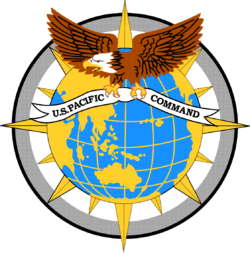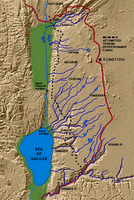ALLOWING RUSSIA AND CHINA TO APPROACH
EUROPE is at a pivotal point. Or, rather, it is at a
point where its structural transformation can no longer be ignored.
Events in EUROPE have finally led us to the dénouement of the 20th Century. It may presage a new EUROPE tied more firmly into the EURASIAN heartland than old EUROPE. It is the end — ’though not without economic, social, and political pain — of the 20th Century form of ATLANTICISM.
Events in EUROPE have finally led us to the dénouement of the 20th Century. It may presage a new EUROPE tied more firmly into the EURASIAN heartland than old EUROPE. It is the end — ’though not without economic, social, and political pain — of the 20th Century form of ATLANTICISM.
US
EASTWARD FOCUSES
Similarly, the UNITED STATES and much of the WEST is at a pivotal point, except
that — by almost all public reaction — this reality can be, and is being,
ignored. Within the morphing of the US, as it sidesteps the question of its own
strategic pivot (and the signs of its own strategic mortality), Washington has
— like EUROPE — walked away from the 20th Century form of ATLANTICISM, in
favour of a PACIFIC orientation (but a PACIFIC orientation which continues to
remain ignorant of the reality that it is the INDIAN OCEAN which is the dynamic).
The Presidential elections in FRANCE on May 6, 2012, and Parliamentary elections in GREECE on the same day — each overturning the status quo — brought some aspects of the EUROPEAN “crisis” back into international debate.
THERE IS AS YET NO REVOLUTION IN EUROPE, OR THE US,
The Presidential elections in FRANCE on May 6, 2012, and Parliamentary elections in GREECE on the same day — each overturning the status quo — brought some aspects of the EUROPEAN “crisis” back into international debate.
THERE IS AS YET NO REVOLUTION IN EUROPE, OR THE US,
or elsewhere in the greater WEST, which will see
massive transformation from one day to the next. The process of change is more
gradual; more evolutionary than revolutionary. It is nonetheless profound. The
election of a doctrinaire socialist, François
Holland, to the French Presidency will not appear at first to yield
dramatic change. Neither did the election of a doctrinaire socialist to the US
Presidency when Barack Obama took
office. And Holland knows that,
however much he wishes to appease his electorate by offering to extend the
benefits of government employment, he has little room for manoeuvre within the GERMAN-dominated
EUROZONE. If anything, the removal of Nicolas
Sarkozy as FRENCH President places GERMANY even more at the centre, and in
control, of EUROPEAN continental power.
EUROPE
HAS BECOME GERMANY
Arguably, now, more than ever, the EUROPEAN UNION is GERMANY. And GERMANY,
which wishes this outcome above all else because it sees it as an alternative
to a fratricidal, war-torn EUROPE, then has to accept that a high level of
structural inefficiencies in most EUROZONE member states degrades the average
economic performance of the whole. Even
so, it gives GERMANY, essentially, a massive market and manpower base.
 |
| Somewhat exaggerated US views on Germany "dominance" in Europe |
So now, whatever Holland might do to
cause FRANCE to retreat somewhat from EUROZONE diktat, EUROPE has become GERMANY.
How long it remains thus is still open to question.
This structural shift, with CONTINENTAL EUROPE turning EASTWARD and the US turning Westward (with both actually gazing across the world to EAST ASIA), has some interesting ramifications for the continued viability of 20th Century alliances and even terms such as “WESTERNISM” and “EASTERN- ISM”. North Atlantic states, such as the UNITED KINGDOM and, to a degree, CANADA, and some of those EUROPEAN littoral states clinging to “WESTERNISM”, will need to look to their futures and decide how to ensure them. The UK, already facing a breakdown in internal sovereignty or cohesion as a unitary state, will have to consider whether it wishes to once again become a major state in its own right (and therefore resist the fissiparous tendencies of the Celts), or whether it will be content to be essentially a city-state built around the markets of London. [The Scottish local council elections, giving great impetus to the secessionist Scottish National Party, on May 3, 2012, were a significant indicator of the UK’s coming difficulties.]
This structural shift, with CONTINENTAL EUROPE turning EASTWARD and the US turning Westward (with both actually gazing across the world to EAST ASIA), has some interesting ramifications for the continued viability of 20th Century alliances and even terms such as “WESTERNISM” and “EASTERN- ISM”. North Atlantic states, such as the UNITED KINGDOM and, to a degree, CANADA, and some of those EUROPEAN littoral states clinging to “WESTERNISM”, will need to look to their futures and decide how to ensure them. The UK, already facing a breakdown in internal sovereignty or cohesion as a unitary state, will have to consider whether it wishes to once again become a major state in its own right (and therefore resist the fissiparous tendencies of the Celts), or whether it will be content to be essentially a city-state built around the markets of London. [The Scottish local council elections, giving great impetus to the secessionist Scottish National Party, on May 3, 2012, were a significant indicator of the UK’s coming difficulties.]
US
HAS WALKED AWAY FROM WESTERN EUROPE
What is clear is that the present Government of the US has walked away from WESTERN EUROPE, and the GERMAN-led EUROZONE now turns its attentions toward its major trading partners across the continent: the RUSSIAN FEDERATION, with its control of oil and gas; and the PEOPLE’S REPUBLIC OF CHINA (PRC), with its markets. Clearly, if history is any guide, RUSSIA and the PRC will ultimately come to compete with GERMANY’S manufacturing. Eventually, restiveness within EUROPE — by such as the GREEKS, ITALIANS, and other “MEDITERRANEE” — may stir rebellion against Berlin. But for the time being GERMAN-led EUROPE is looking EAST, and RUSSIA and the PRC are happy to oblige.
WASHINGTON, MEANWHILE, PLAYS WITH NEW CLOTHES FOR WHAT IT STILL SUPPOSES TO BE ITS QUIESCENT PET, TURKEY,
What is clear is that the present Government of the US has walked away from WESTERN EUROPE, and the GERMAN-led EUROZONE now turns its attentions toward its major trading partners across the continent: the RUSSIAN FEDERATION, with its control of oil and gas; and the PEOPLE’S REPUBLIC OF CHINA (PRC), with its markets. Clearly, if history is any guide, RUSSIA and the PRC will ultimately come to compete with GERMANY’S manufacturing. Eventually, restiveness within EUROPE — by such as the GREEKS, ITALIANS, and other “MEDITERRANEE” — may stir rebellion against Berlin. But for the time being GERMAN-led EUROPE is looking EAST, and RUSSIA and the PRC are happy to oblige.
WASHINGTON, MEANWHILE, PLAYS WITH NEW CLOTHES FOR WHAT IT STILL SUPPOSES TO BE ITS QUIESCENT PET, TURKEY,
 failing to recognize that TURKEY is neither stable
nor obedient to the US. Nor will it, or can it, give Washington what it desires
in the MIDDLE EAST or the Muslim
world. When the Balfour Declaration was announced in 1919, one European Jew was
heard to remark to another: “If Britain
wanted to give us a land it did not own, why didn’t it give us SWITZERLAND?”
Similarly, Ankara cannot give Washington — even if it wished — something it
doesn’t own: the ARAB WORLD, the MAGHREB, or CENTRAL ASIA. So Washington toys
with Ankara, and fawns to the radical Islamist
Muslim Brothers (the Ikhwan), deceiving itself into believing itself still
to be a player, if it ever was, in “the
Great Game”.
failing to recognize that TURKEY is neither stable
nor obedient to the US. Nor will it, or can it, give Washington what it desires
in the MIDDLE EAST or the Muslim
world. When the Balfour Declaration was announced in 1919, one European Jew was
heard to remark to another: “If Britain
wanted to give us a land it did not own, why didn’t it give us SWITZERLAND?”
Similarly, Ankara cannot give Washington — even if it wished — something it
doesn’t own: the ARAB WORLD, the MAGHREB, or CENTRAL ASIA. So Washington toys
with Ankara, and fawns to the radical Islamist
Muslim Brothers (the Ikhwan), deceiving itself into believing itself still
to be a player, if it ever was, in “the
Great Game”.
GERMANY
AND RUSSIA HAD THE BENEFIT OF “RISING FROM THE ASHES”
In all of this, RUSSIA, once again with Vladimir Putin in the Presidency as of May 6, 2012, has some advantages. RUSSIA was able to begin building a new state when the USSR collapsed to rubble in 1990. It could reinvent itself, and is now pushing to reinvigorate its manufacturing sector, so that it is not merely a font of oil and gas for WESTERN EUROPE. GERMANY’S success post-World War II was also that it could rise from the ashes, unencumbered by the bureaucratic sclerosis of the past.
Why should AUSTRALIA, once a great manufacturing
nation, not resume such a direction, instead of descending to become a Third
World source of raw materials for the PRC? Because, as with much of EUROPE and
the US, AUSTRALIA lacked the great
blessing of a traumatic collapse, and government spending, rather than the
stimulation of private investment, remains the focus. (Just as it is the case currently
in ARGENTINA)
But the frustrations of societies mount in EUROPE and the US, over bureaucracies which rule undemocratically, and which extort “electorates” to pay for governmental gluttony. In ITALY, indeed, they wonder why the world has ignored the coup which replaced their elected government, and which threatens to drive away all investment and prosperity.
This is a new world.
By. Gregory R. Copley
But the frustrations of societies mount in EUROPE and the US, over bureaucracies which rule undemocratically, and which extort “electorates” to pay for governmental gluttony. In ITALY, indeed, they wonder why the world has ignored the coup which replaced their elected government, and which threatens to drive away all investment and prosperity.
This is a new world.
By. Gregory R. Copley









